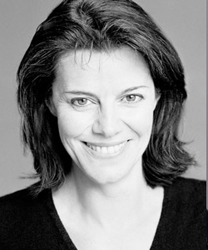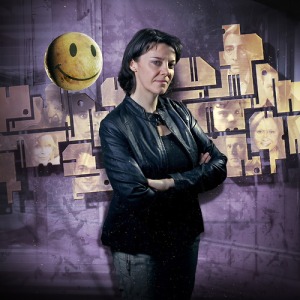You’ve gotta love a good workshop.
A workshop can be a tremendous motivator, inspiration and general pick-me-up for the audition-weary actor. It might offer a chance to commune with a casting director, discuss do’s and don’ts with a director, or acquire a new skill for the old CV.
If you’ve attended any yourself, no doubt you can call to mind the best of the bunch – sessions which inspired you, offered timely words of wisdom or even led to an audition invitation. Earlier this month I attended a session that ranks amongst my own favourite Top 5 Workshop Wonders.
Once upon an icy January morn, I and a group of fellow thesps were treated to a day of Q&A and discussion about the whats, hows and wherefores of radio drama, hosted by a BBC Radio 4 Producer in conjunction with Theatre Bristol. We listened, questioned and queried. We analysed of a selection of recent drama programmes. And we followed up with plenty of opportunity to get the hands (or microphone..) dirty.
This day of audio action was devoured appreciatively by all in attendance, and despite cautionary words about the difficulties of breaking into the voice acting market, we all left with our audio appetites well and truly wetted.
Accordingly, I got in touch with an actress mightily familiar with this area of the acting industry, a lady who played my pushy Mum in one of my earliest screen outings…
Introducing Lisa Bowerman, Actress-Radio‘Artiste’-Director-Photographer.
Lisa was kind enough to let me pick her brains about the ins and outs of a radio career, a subject on which she is supremely equipped to offer advice…
[The following is to be delivered in the manner of flamboyant ‘This Is Your Life’ voice-over…]
“Following a steady stream of radio gigs from the time of her training at Bristol Old Vic Theatre School, Lisa Bowerman struck radio drama gold when in 1998 she was cast as the titular heroine in Big Finish production company’s ‘Bernice Summerfield’. This series of original dramas (although the character initially appeared in novel form) followed an intrepid female archaeologist, adventurer and sometime companion to Doctor Who, and quickly developed a cult following among those with a love of all things Doctory. Bernice continues to flourish today, with the original series being the springboard for Big Finish to be given to the license for ‘Classic Doctor Who’ series to be produced. With such success behind them, the company has expanded to the production of audios of other much-loved TV series including ‘Dark Shadows’, ‘Blake’s 7’, ‘Stargate’ and ‘Highlander’, as well as classic characters including Sherlock Holmes and Dorian Gray.
As well as continuing as the voice of Bernice, seven years ago Lisa branched out into directing for the company, overseeing Big Finish productions such as ‘Sapphire & Steel’, ‘The Companion Chronicles’, ‘Graceless’ and ‘Jago and Litefoot’.”
Told you – disgustingly well qualified to offer us some tasty radio titbits.
And here they are:
(I felt it apt to present our discussion in the format of a radio interview…)
Katherine Press: How did you get into voice work?
Lisa Bowerman: I was lucky enough to be selected for the Carleton Hobbs Award whilst studying at Bristol Old Vic Theatre School, (in which, I have to say, I got absolutely nowhere!..) but as well as the experience and contacts this opportunity provided, the then principal of the BOVTS, who also wrote radio drama, recommended me for a play he’d written a couple of years after I’d left the school, and was completely instrumental in my getting my early radio experience. My early work included stints at Independent Radio Drama Productions, as well as work for the BBC at its then radio centres in Manchester and Birmingham. Then came the offer of an audition for Bernice Summerfield…
KP: Ah, which turned out to be a huge hit! From your experience in both acting and directing, what are the main things you have discovered about working in radio drama?
LB: These are the things I always keep top of my mind when directing:
1) Be clear as to what is happening, and make sure the actor is as clear on this as well. This may sound obvious but it’s so important to know the full context of the scene and what stage the character is at action-wise; also to be aware of any sound effects that will be added in post production that will affect the level at which the actor is playing the scene. This enables you to convey a fully-rounded world to the listener.
2) Pacing is crucial. Whereas on stage or screen physical action plays a part in the story-telling, in radio drama you have only your voice to create the flow and rhythm of a scene, so the speed and energy of the voice has to be monitored very carefully! This is something the director is perhaps better equipped to oversee than the actor, but it’s certainly something the actor should be aware of. As a director, you really are just the ears of the listener.
3) Vocal energy. Some radio directors may advocate a “less-is-more” philosophy (not in terms of silences – but of volume and energy) in an effort to restrain overenthusiastic performances, but I worry that this can potentially undermine a key aspect of radio drama. In my mind, radio has more similarities to stage than screen work, given the vocal dexterity it requires; the ability to shift the vocal energy up a gear, or to take it down to an intimate level when required. You have to use your voice as an instrument to inhabit the audio landscape you’re in, and this is something that is not always exploited in the “heightened naturalism” of some screen work today. It may be a bit of a generalisation but I have found that some younger actors find it difficult to know how to “turn on” their vocal energy; they’re very focussed on giving what you might call a “TV performance”, and are almost frightened to let themselves go in front of the microphone.
4) My final point is silences. I love a good silence, it can be so powerful! But a silence has to be earned, and this relates back to the pacing issue I mentioned above.
KP: How do you go about casting for Big Finish Productions?
LB: The thing you have to remember is that everyone wants to get the best results in the most enjoyable way possible! So I and the other four directors at Big Finish have a pool of actors who we know and trust, and we often consult each other when casting. I’ve been in the industry for a good few years now, so I’ve a goodly list of contacts. It’s great to make the most of actors you know will do a great job and who are a pleasure to work with – of course part of the joy of radio is that an actor can play roles completely removed from his or her physical casting range! We’ll send out a breakdown if we are looking for something unusually specific, and we also have a group of trusted, favourite agents who we will go to for ideas. That said, I love discovering new voices, and am known for sitting in theatre performances (and sometimes in front of the TV) with my eyes closed, scribbling down the names of interesting sounding actors in my little black book! And at Big Finish we make a point of listening to voicereel submissions, so we’re always on the lookout for exciting new talent!
KP: On that note, do you have any advice when it comes to voicereels?
LB: Yes! We usually consult an actor’s Spotlight CV, so make sure your reel is uploaded there. In terms of content, try to include a range of styles and genres – adverts are all very well but I find it difficult to cast people for drama if I haven’t also heard some narrative on there. Don’t put an accent as the first thing we hear – we want to hear your natural voice first. In fact, don’t include accents or character voices at all unless you are highly skilled at them – because if you’re less than perfect there are plenty of actors out there who aren’t! And keep it short and snappy, so we get a thorough but compact profile of your vocal talents. Voice work seldom comes down to auditions, so your reel is crucial in securing work. The only time we tend to hold auditions is in the case of children’s casting (I’ve learnt from experience on that one!) or if we are searching for a new series lead, when we need to be sure we have the right person!
KP: Do you have any advice regarding agents?
LB: Obviously I can’t advise on specific agencies, but I can say when looking for a voice agent, do your homework. See, or rather hear, which actors keep popping up on radio or indeed in supporting roles on TV, and find out who represents them. Many productions favour the casting of “names” in the lead roles, but the agency who represents a regular support cast actor may well be a favoured go-to agency for production companies and directors.
KP: Bit of a cheeky one, but have you ever had a clash of voice and “regular acting” commitments..?!
LB: Hmm, no comment! At the end of the day, it all comes down to priorities. Sometimes you will have to make a judgement call – is this acting audition/day of telly work worth turning down a voice job? And vice versa. I do most of my pre- and post-production Big Finish directing from home, so that’s relatively flexible. But once I’m in the studio there’s no backing out if that audition does crop up. Luckily I’ve never had to make an especially tough decision – so far the big jobs either side of the net have kept themselves nicely separate! Of course this is one area where my photography (Lisa has worked as a headshot photographer since 1990 under the name LB Photography) wins second string brownie points – I am free to schedule photo sessions and editing time around my acting commitments.
KP: Any final thoughts?
LB: Don’t expect a radio career to be hugely lucrative! Sadly, like most areas of the industry, it doesn’t pay as well as it once did. BUT, it’s great work if you can get it and it’s a marvellous way to keep the acting juices flowing in between “regular acting” jobs. As with any second string option, if you have the facility, go for it, but also work on it. Do your homework, put in the practice and see where it takes you. If my experience is anything to go by, you’ll probably be surprised at where you end up. If I’d expected back when I auditioned for Big Finish in 1998 that we’d still be going strong and I’d be directing – and in sci-fi of all genres – I probably wouldn’t have believed you! So often we just “fall into” things. So be open, be prepared to put in some work, and you never know what’s around the corner…
Inspiring stuff. Hope you found that as fascinating as I did! I shall add nothing more except to thank Lisa for giving such a marvellous insight into the wonderful world of radio…
Thanks for reading, and until next time, may your second strings be fabulous…
Follow @KatherinePress on Twitter or Like the Facebook Page: https://www.facebook.com/actorinsearchof
Or you can follow via email by clicking the link on the right of the page!


